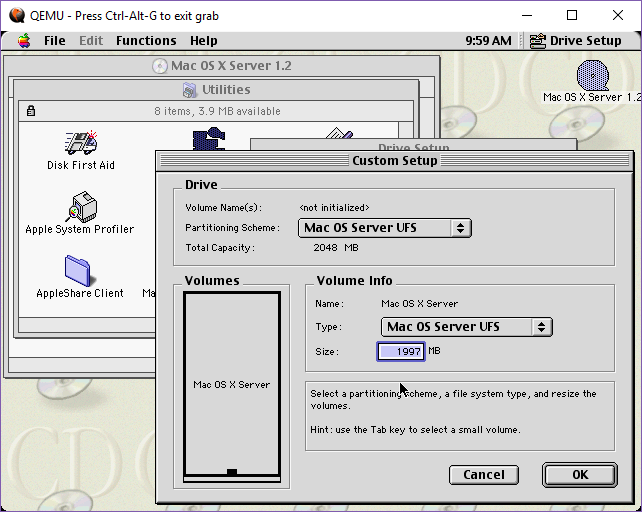Macos Server Mac Macos Server For Mac 3,6/5 7811 reviews
MacOS Server 5.6.3 requires macOS High Sierra 10.13.4. After installing the macOS update, you can. (To prevent interruption of services, new versions of Server aren't installed automatically, even when App Store preferences are set to install other updates automatically.) During installation, you might see the message ”Server app replacement detected.” This is expected. Ralink rt2561 rt2661 drivers for mac.
All Server settings and data are preserved during the update, and you can use the Server app to finish setting up previously configured services after the update. Apple no longer bundles open source services such as Calendar Server, Contacts Server, the Mail Server, DNS, DHCP, VPN Server, and Websites with macOS Server.
You can get these same services directly from open source providers. For more information, learn more about.

Apple continues to develop and support the other features of macOS Server, including Open Directory, Profile Manager, and Xsan management. Information about products not manufactured by Apple, or independent websites not controlled or tested by Apple, is provided without recommendation or endorsement. Apple assumes no responsibility with regard to the selection, performance, or use of third-party websites or products. Apple makes no representations regarding third-party website accuracy or reliability. Risks are inherent in the use of the Internet. For additional information.
Other company and product names may be trademarks of their respective owners.
Macos Server For Mac 5.3
Apple today updated its with a collection of new features in Version 5.2 that bring integration with Apple School Manager, various streamlining updates to the Setup Assistant of some apps, and security restrictions for new macOS features like auto-unlock with Apple Watch. Specifically, macOS Server users can now choose to skip the new Siri Setup Assistant in Sierra, as well as the setup panes in iOS 10 for iMessage and FaceTime. Previously dubbed 'OS X Server,' the app introduces 'even more power to your business, home office, or school,' by turning any Mac into a powerful server. MacOS Server can make it easier to share files, synchronize contacts, host a website, configure iOS devices, remotely access your home network, and more. I like this idea, but it would probably such a small fraction of people who would actually make use of it that they probably don't want to put any energy into developing it.
Probably so many apps and services that hook into iCloud that just testing all the different use cases would be a nightmare. I think the appeal is broader than you say.
Sure, for individuals, paying the monthly icloud fee is the best way to go for a number of reasons. However, think about all the professionals that like to use iOS devices, but are obligated by various laws or regulations to protect data extra carefully. Lawyers owe a duty to their clients to keep client data confidential. Doctors and other health-care professionals have to comply with various HIPAA data storage regulations. Anyone doing business with Europeans have to take extra care of personal data per various treaties. In some of these cases, not knowing exactly where your data is physically stored could be seen as a per se violation.
I think it would be quite a good solution to some small businesses, which are too small for a huge IBM or Cisco enterprise software, to just be able to host their own icloud server, and let all their docs, spreadsheets, pictures, and app data live there. They can choose to implement a security policy as strict or as relaxed as they deem appropriate, with some policies that Apple doesn't support in their own icloud (e.g., I would configure my icloud server to only respond to known whitelist of MAC addresses). I would pay $500+ for a version of OS X Server that had this.
Surely many other small businesses that are required to take their data seriously but also like using iOS devices would too. Notably, there is a good market for this. Netgear's ReadyNAS, Western Digital's MyCloud, Synology, etc.

They all offer pretty good hardware/software that does what I described. But none of their solutions integrate with iOS as well as iCloud does.
If a business that loves iOS is willing to spend $5000 on a good Synology setup, surely they would spend $1000 to buy OS X Server that includes iCloud server. Would this be useful to use if I am just using my Mac Mini as a Plex and iTunes Server? I am always looking for ways to minimize the OS footprint and optimize the performance. Server is mainly useful for Time Machine, hosting a web site/email server, and some more advanced options over the built-in OS X File Sharing. Plex and iTunes sharing would be handled by those specific apps. doublepost=/doublepost If nothing else, you should look at installing as a caching server.

It's very simple to setup and can really help on big update days like today. That is something I need to set up, should help with having multiple Macs. Unfortunately, this article mixes up the macOS server package on the one hand and one of its services - though the most exciting one, i.e. Apple's MDM solution 'Profile Manager' - on the other. In case you want to run macOS server in the cloud (especially to manage your mobile devices), this tutorial will help a lot: By also activating the calendar, contacts and messaging services, you can build a pretty complete iCloud replacement.